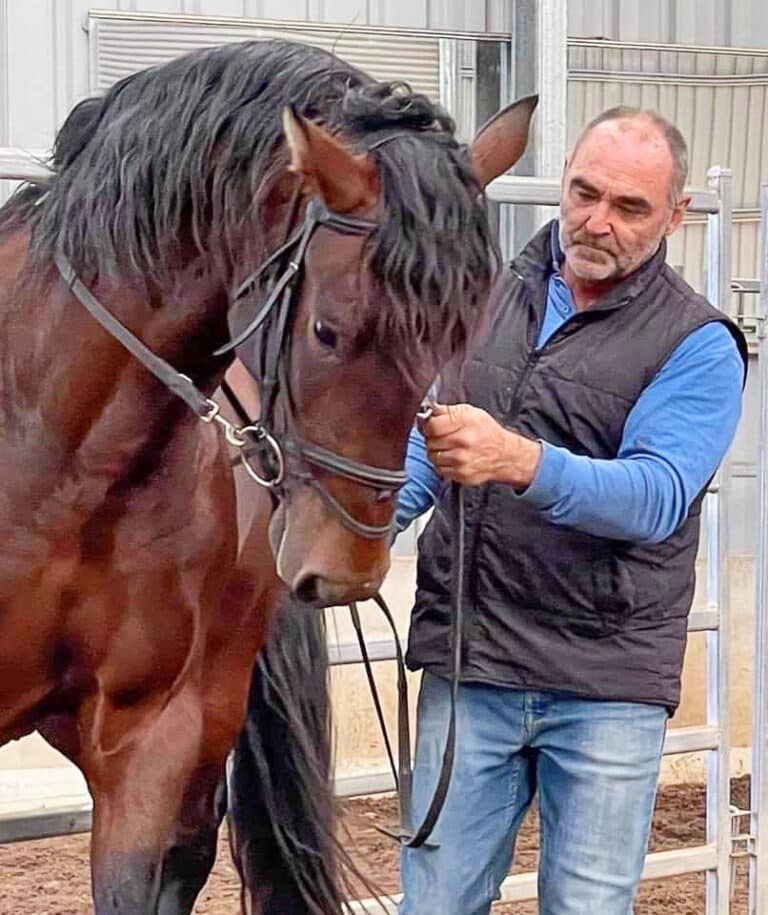The Mending hearts and minds
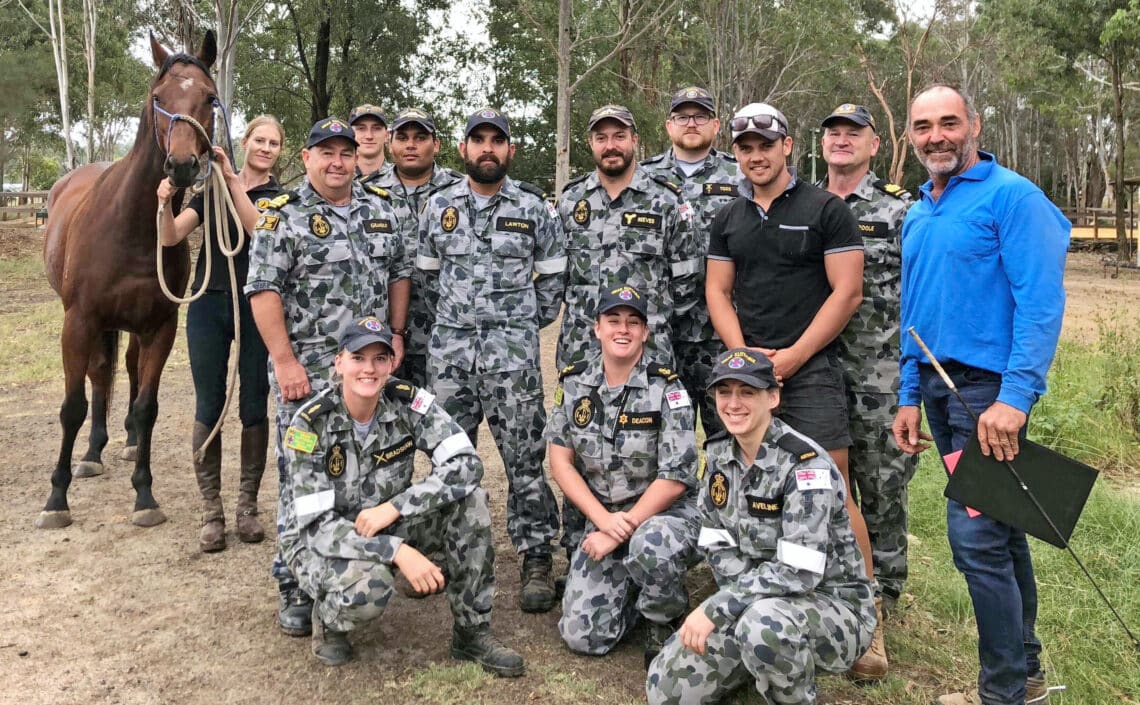
The value of therapy horses has long been recognised, and in Scott Brodie’s opinion, healing is a two-way street. He spoke to AMANDA MAC.
Scott Brodie’s trajectory into a career with horses was not typical. Growing up in the urban sprawl of Sydney’s Eastern Suburbs, he loved animals and had a great affinity with them, but opportunities to interact with horses were not exactly thick on the ground.
But that changed when in his early twenties Scott joined the police force. “At the end of our probation, we had a month-long secondary training. It was held at the old police academy in Redfern, which is where the Mounted Police are based. So, every lunchtime I’d go and watch the horses and I was just in awe of them.”
By the end of the month, Scott had decided that the Mounted Unit was where he wanted to be. The unit was then headed up by Don Rowland, “a great horseman and a great copper,” Scott tells me. He approached Don and by the end of their conversation, which among other topics had touched on their shared passion for participating in a variety of sports, Don was convinced that the young officer’s commitment and athletic ability made him a good candidate for the Mounted Police.
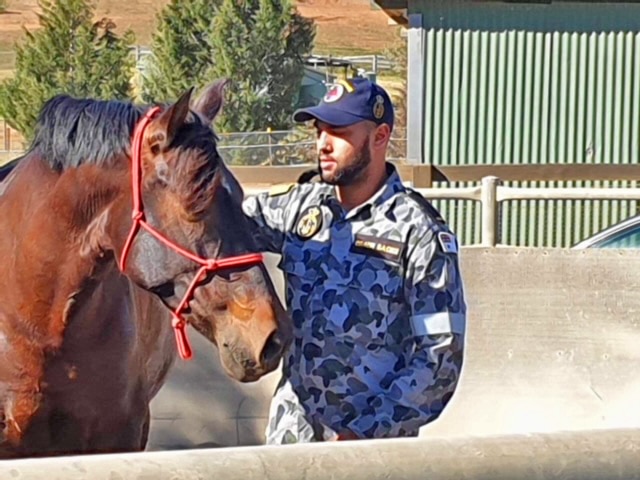
Scott followed up on Don’s suggestion to have private riding lessons, as well as regularly riding at the unit on horses Don made available. It paid off; Scott’s horsemanship rapidly improved and eventually he was ready to put in for a transfer to the Mounted Police. The transfer was accepted, and it’s where he stayed for the next eleven years.
After retiring from the force in his early thirties Scott freelanced, giving riding lessons and training horses until a relative’s demise necessitated him taking over a family business. The ensuing five-year stint ended when a near-death accident in a surf lifesaving boat (Scott had been involved with the organisation for many years), prevented him from running the business. “That knocked me about quite a bit. It was a pretty down time. I was trying to work out what to do next when my wife said I should go back to horses.” Coincidentally, it was around then that the Mounted Police were looking for people to train their horses, so Scott returned on contract and attributes working with the horses as key to his journey back from post-accident depression and PTSD.
Meanwhile, the Australian Turf Club, which had been paying for a mounted police presence on race days, had decided to set up their own security unit. They contacted the Mounties for advice, Scott was recommended as the man for the job, and a new opportunity opened up. “I had four Andalusians at the time, so I started schooling them as patrol horses and contacted some old mates from the Mounties. A rock concert was our first event for the club,” Scott recalls.
From then on, he and his team patrolled all the club’s race days, and while the Andalusians were working well, the club could see the sense in retraining ex-racehorses and using them instead. It wasn’t long before Scott found himself working with more and more off the track Thoroughbreds, with the idea that those additional to security needs could be rehomed.
Then Racing NSW expressed an interest in taking over his contract. Their plan was to build the retraining program into something even bigger. “It was called the Thoroughbred Rehabilitation Trust, and we trained close to 1,000 horses up to competition standard for rehoming,” Scott explains. In his opinion, racehorses are often put in a very similar position to military veterans in that what they’ve been taught to succeed in their job is superfluous once they’ve retired, a situation that Scott has been able to turn around for hundreds of OTT horses.
But another serendipitous turn of events was about to shift his focus. An old friend from the UK had served in Afghanistan with the Royal Marines and was suffering mentally as a result. While seeking treatment options he had become aware of a horse therapy program being run in the UK that was successful in helping ex-servicemen and women suffering from PTSD. He spoke to Scott about the program, and the idea of offering a similar workshop at a property owned by a mutual friend in NSW’s Kangaroo Valley began to take shape.
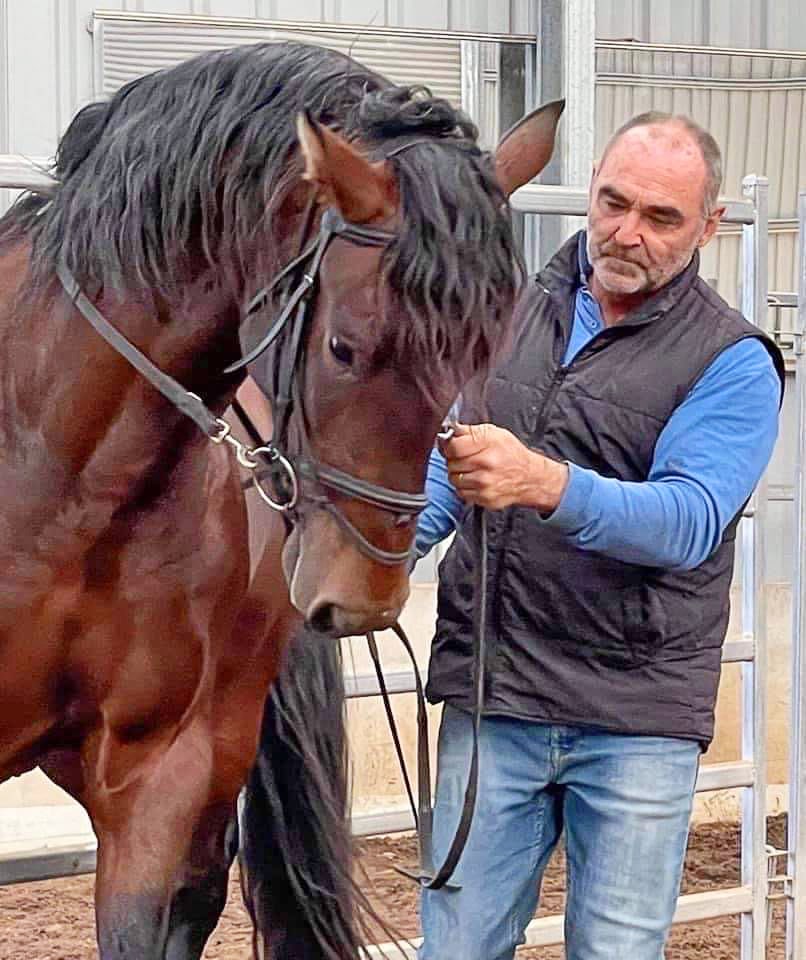
However, what was supposed to be one workshop grew to be so much more. Now the director of the Thoroughbred and Veteran Welfare Alliance, and one of the directors of Horse Aid, Scott (an accomplished horseman who for many years trained in classical dressage) has a theory around why horses are instrumental in healing. “I think our history with horses, which goes back thousands of years, is more deeply ingrained in us than we think. Although we’re often not in tune with them, there’re a lot of primitive behaviours we have in our psyche in the way we communicate, relate to others, our body language and so on. And horses interact in that primal way, they can even sense our pulse rate. When a veteran interacts with a horse, being able to regulate their energy and control their emotions so they can communicate with the horse is a big thing, because horses won’t accept lying. If you don’t approach them with the right attitude, they don’t want to be involved.”
Learning self-regulation is pivotal in helping manage PTSD, as well as in becoming aware of personal behaviours that might range from a lack of assertiveness to overly confident bravado. “Veterans walk into the round yard with those types of behaviours and the horses won’t work with them. And that’s a bit like life, those same people might be having confrontations because they have an aggressive attitude they’re not aware of, or are walked over because they’re not assertive enough. You need to get a handle on these things and horses definitely help bring those behaviours out.”
Since that first workshop, Scott and his team have helped in the vicinity of 300 veterans – and some of the breakthroughs have been extraordinary. Take Isaac for example, a veteran who had tried various therapies before going off the rails with drugs and alcohol. But he’d heard of horse therapy and with no idea what he was doing, bought a horse from the doggers – an animal which, everyone told him, was dangerous and likely to hurt him. Eventually he found Scott and the lives of horse and human were changed. “He stayed with me for about three years and his journey was amazing. I’ve watched him go from a really angry young guy getting into arguments all the time, to becoming a good horseman who has started his own veteran’s program in Queensland. He’s pretty inspirational.”
Then there’s Mel, who appeared in the recently released documentary The Healing, (which follows a group of veterans in Scott’s program). Mel was bullied and sexually assaulted while she served in the navy. Contact with horses pulled her out of a dark mental state and she’s now a film producer, an author, and works with other veterans.
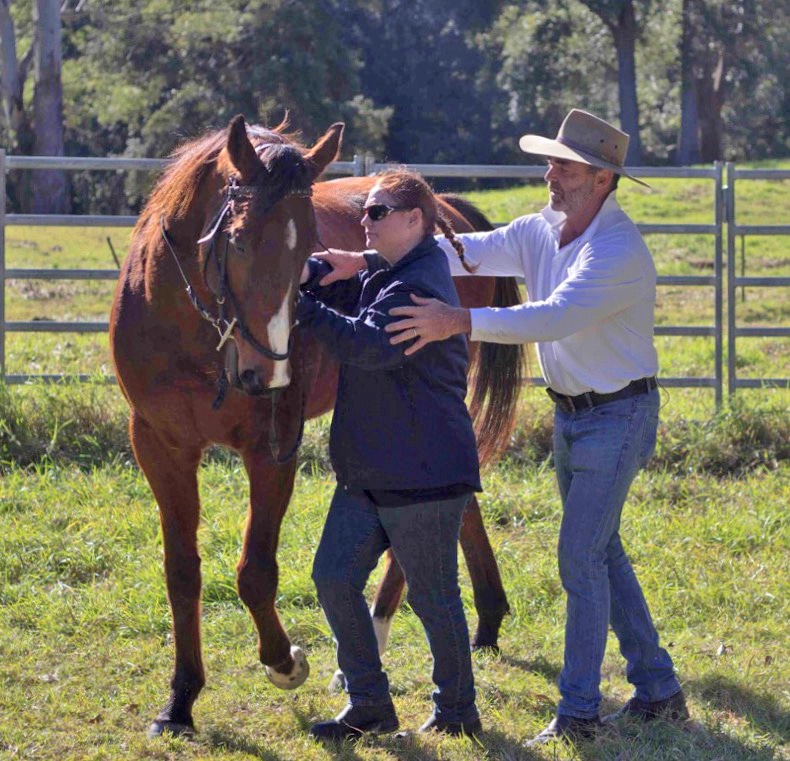
Many people Scott has helped have told him they wouldn’t be alive if they hadn’t found Horse Aid. “The commissioners at the Royal Commission into Veteran Suicide have talked about how many veterans are killing themselves, and how many more would have done so if we didn’t have these alternative therapies,” Scott says. “I’m amazed at how many people we’ve probably saved.”
While the first workshops were held in Kangaroo Valley, Scott and his team are now operating out of Heartland, a property at Sutton Forest in the NSW’s Southern Highlands. But ultimately, the number of veterans they can help is limited by funding. “We get no support from the racing industry or from the Defence Department. Everything we do we have to raise funds for through our non-profit Horse Aid. Fortunately, I’ve got a couple of great volunteers who are getting things up and running so we can raise funds.”
And with its positive outcomes for both our veterans and OTT horses, Horse Aid is surely more than worthy of our support.
If this article has raised issues for you, or for someone you know, contact Lifeline on 13 11 14, or Beyond Blue on 1300 22 4636 (both services are 24/7).

Scott and his team are dedicated to helping as many veterans and horses as they can. Donating to Horse Aid is a great way to support the ex-servicemen and women who have courageously served Australia, while at the same time providing a second chance for ex-racehorses.
All donations are tax deductible. Horse Aid is a registered charity with the Australian Charities and the Not-For-Profits Commission (ACNC).

